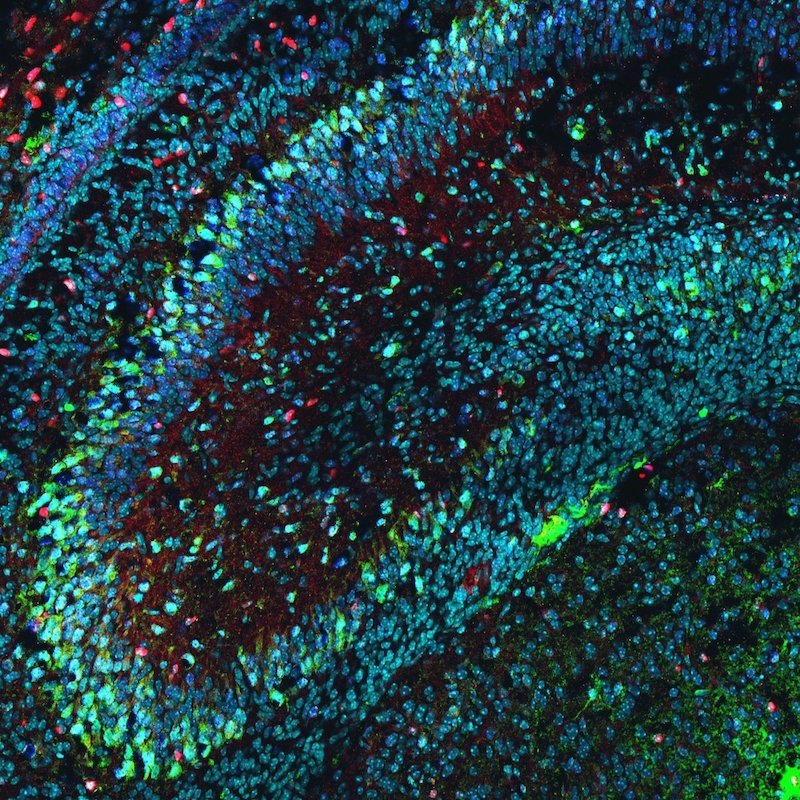Stabilizing the Nervous System in Health and Disease
Our long term research goal is to understand the mechanisms underlying homeostatic regulation that stabilizes the nervous system and how the dysfunction of homeostatic control contributes to neurological diseases, such as epilepsy, Autism Spectrum Disorder (ASD) and Alzheimer’s Disease (AD). Our lab uses a broad spectrum of techniques such as electrophysiology, confocal imaging, super-resolution imaging, RNA-Sequencing, and genome editing in combination with cutting-edge computational methods to explore the basis and functional consequences of dysregulated homeostatic signaling.
Check out our latest lab news here:
Research Focus
The brain is incredibly complex and malleable in terms of developmental and learning-related plasticity. Homeostatic signaling systems act to stabilize the function of individual nerve cells and neural circuitry, thereby ensuring robust and reproducible brain function and behavior throughout life. Our lab investigates the mechanisms that underlie the homeostatic control of the nervous system and studies how impaired homeostatic plasticity is involved in neurodevelopmental, neuropsychiatric and neurodegenerative disorders. We take advantage of electrophysiology, imaging, genome editing and computational methods to understand how human disease-relevant genetic variants affect the stability of the nervous system. The model systems that we use include Drosophila melanogaster, primary neuron cultures and mouse disease models.
We are looking for highly motivated and enthusiastic researchers (postdocs, graduate students and undergraduate students) to join our team.
Graduate students are recruited through the Department of Pharmacology & Physiology, Department of Biology and Interdisciplinary Program in Neuroscience (IPN) at Georgetown University.
For postdoc candidates who are interested in joining the lab, please send a cover letter, CV, reference letters and a short research proposal (1-2 pages) to Tingting Wang (tw652@georgetown.edu).
Highly desired but not required expertise for postdoc candidates: electrophysiology, transcriptome analysis, genetics, primary neuron culture and iPSC.
Courses taught by Dr. Wang at Georgetown University
Principles of Pharmacology PHAR-6000
Sessions taught: Excitatory synaptic transmission.
Graduate Pharmacology and Physiology PHAR-8000
Sessions taught: Invertebrate model systems, antiviral drugs, antiprotozoal drugs and anthelmintic drugs.
Advanced Pharmacology PHAR-8001
Director. Sessions taught: Synaptic transmission and plasticity.
Cellular and Molecular Neuroscience (IPN Core) NSCI-5002
Sessions taught, Neuromuscular junction and synaptic transmission.
Advanced Cell and Mol Neuroscience NSCI-6001
Director. Sessions taught: Synaptic transmission and plasticity.
Neuroscience Critical Reading NSCI-5003
Sessions taught: Synaptic transmission and plasticity.
Experience in Neuroscience NSCI-8001
Introduction to Neurophysiology PBIO-6569-01
Sessions taught: LTP, Homeostatic plasticity and diseases.
Sensory System BIOL-380-01
Sessions taught: Drosophila olfactory system.
Our research is generously supported by
Copyright © 2024 Wang Lab at Georgetown University. All Rights Reserved.













